ECC Veracruz
Learning for climate change mitigation and adaptation
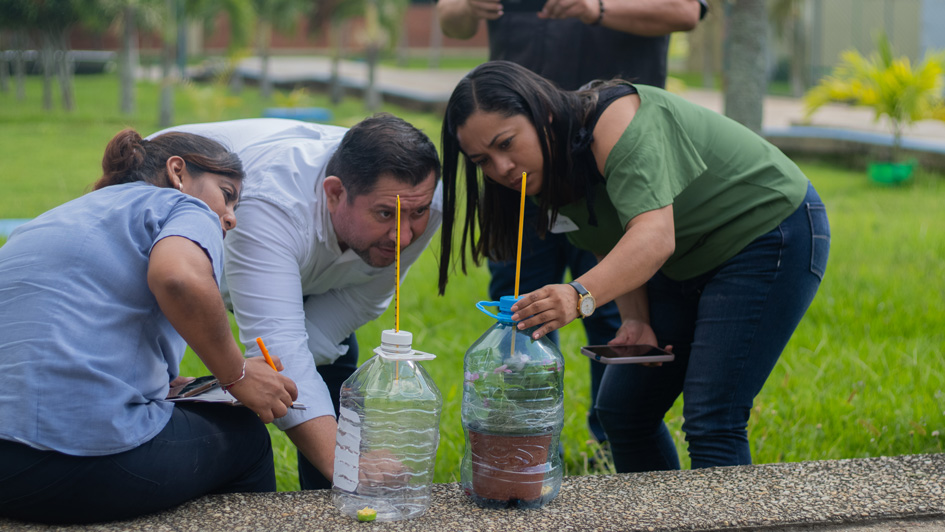
The project “Educación en Cambio Climático (ECC) Veracruz” brings together education, science, and communities with a holistic approach to address the specific challenges of climate change in the Mexicon state of Veracruz (east-central coast of Mexico). Implemented in two phases, the initiative contributes to empowering both teachers and students to take proactive steps and advocate for climate change mitigation as well as adaptation to its impacts.
Project
Strengthening climate resilience in Veracruz
Due to its geographic location, Veracruz is particularly vulnerable to the impacts of climate change. Rising sea levels, coastal erosion, heavy rainfall and prolonged dry seasobs threaten the community and natural resources, the energy industry, and the region’s infrastructure. To create much-needed awareness of climate adaptation measures, we worked with the nonprofit organizations Fondo Golfo de México and INNOVEC – both partners of our Red STEM Latinoamérica – and the Education Secretariat of the Veracruz state to develop an approach that strengthens climate change education as a vehicle for holistic change.
The project is divided into two phases, focusing on different geographical regions to address the specific impacts of climate change: Phase one: coast and phase two: mountains. The project ECC Veracruz is part of our international commitment to advancing climate changed education.
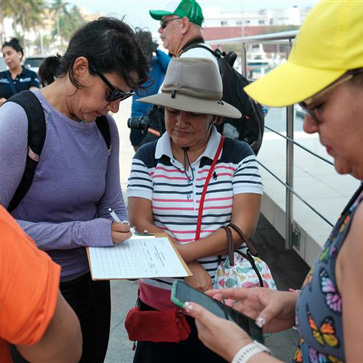
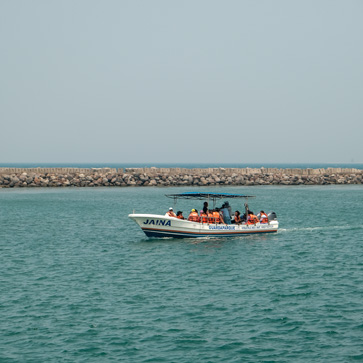
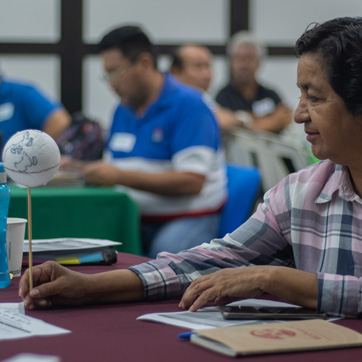
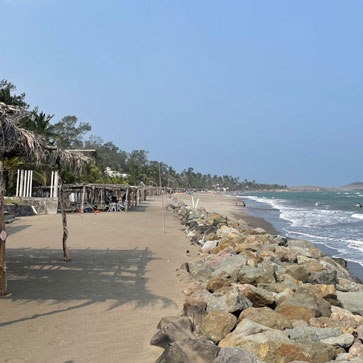
Three key pillars
Open Education Resources
Creating and disseminating scientifically and pedagogically vetted and openly licensed educational materials in the form Open Education Resources that are free.
Teacher Training
In workshops, STEM/Basic Education teachers (6-14 years) are trained to confidently teach the complexities of climate change through active pedagogies.
Power of Networks
Regular exchange between local and global networks to learn best practices and consolidate initiatives for climate change education.
Phase 1 (2023-2024)
Climate Change Education for the coastal region of Veracruz
The main goal was to develop knowledge and professional skills in the Basic Education teaching community. Training students to understand the phenomenon of climate change, its local impacts and consequences, as well as possible actions and activities to adapt to them.
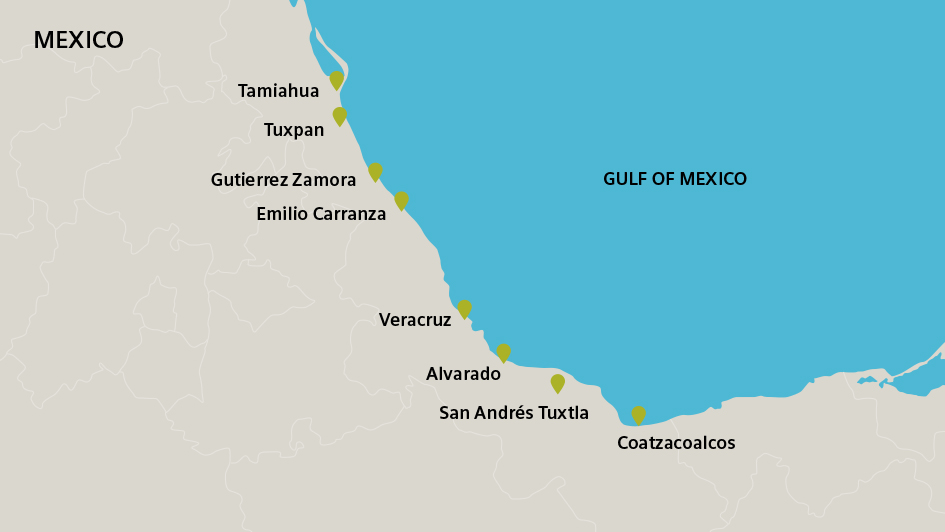
Outcomes
> 900 teachers trained
As a first step, 901 teachers were trained in adaptation, mitigation and awareness raising projects that focus on ocean in climate change.
> 300 projects implemented
Teachers registered 306 projects with students ranging from local rainwater harvesting, climate resilient school gardens to storytelling activities on local climate impacts.
> 17,000 students reached
More than 17,000 students were involved (8,917 boys and 8,837 girls) to carry out the projects.
«The goal is to create a domino effect so that knowledge is transferred from teachers to students, their families, and the community as a whole.»
Claudia Robles, INNOVEC Mexico, Project Partner
Phase 2 (2024-2025)
Climate Change Education for the mountainous region of Veracruz
Our goal is to take our learning from the coastal region to the mountainous region of the state after conducting the necessary adaptations. Together with our partners, we aim to develop teacher training modules adapted to the specific climate change impacts of the mountainous region of Veracruz. Including heat waves, irregular rainfall patterns, and increased risk of landslides to train 640 Basic Education teachers using inquiry-based teaching and project-based learning methodology.
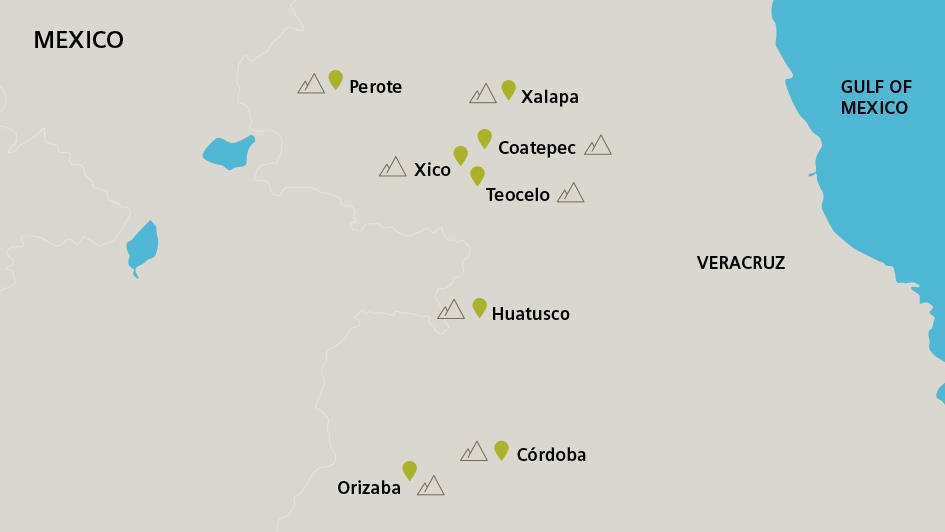
Activities
Extensive training for STEM teachers
The project is based on a series of workshops on climate change education for STEM teachers. Up to 256 schools in Veracruz will benefit from this project. The workshops cover relevant topics related to climate change, active teaching and learning methods to convey this content in a practical and vivid way in the classroom using our STEMplus approach. Freely available Open Educational Resources on climate change education complement the training.
Practical and project-based learning
The goal is to strengthen students’ ability to acquire and apply climate change knowledge actively. Through practical projects, students are encouraged to independently address climate change-related challenges and to take action for mitigation, adaptation and awareness raising. The guiding principle is the inquiry-based learning approach: Teachers and students conduct experiments and surveys in their localities and discuss their findings and possible solutions.
Raising public awareness on climate change
The focus is on students so that they can learn by carrying out projects in their surroundings. Some of student project examples include: School and community projects such building water harvesters, agroecological school gardens or native tree conservation inititiatives. By taking part in such activities, students undertake a more active role, growing up as a new generation of responsible citizens, motivated to act for the interest and well-being of their community.
Partners
Building a community of practice for climate change education
Part of the project is also building a community of practice that is actively engaged in teaching and developing climate change education projects. This community will be connected to the international community of the Office for Climate Education (OCE) to share experiences and learn from best practices.
Voices from the project
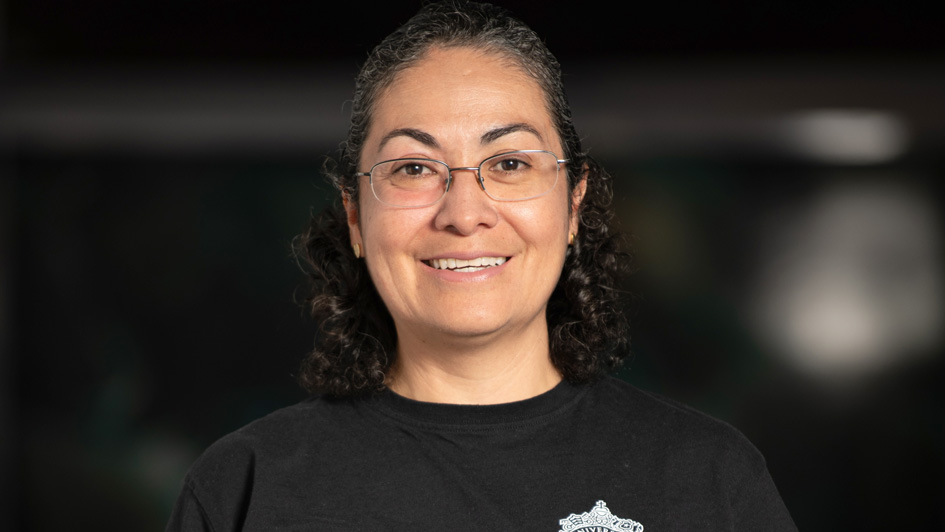
«In the fight against climate change, it is important to act through education to encourage action because our example can change the world.»
Beatriz Del Valle Cárdenas, Program Coordinator / Fondo Golfo de México AC
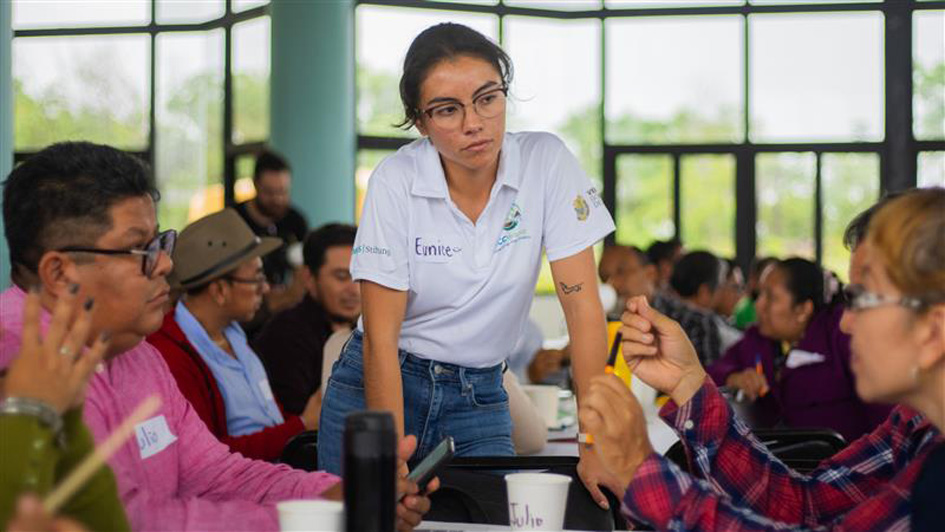
«With very little materials, I can get my students to really learn concepts about climate change in an experiential way.»
Mtra. Maribel Fernández Baeza,
Director, elementary school, Veracruz.
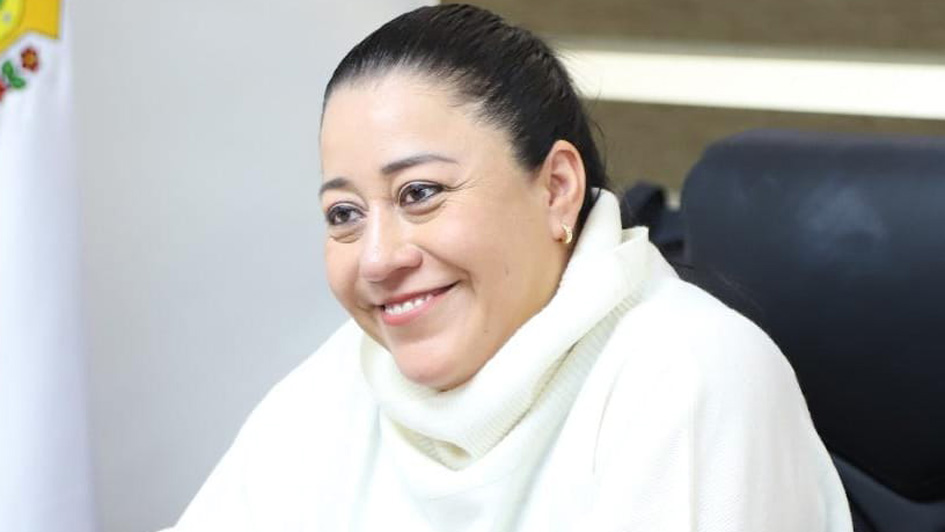
«In the state of Veracruz, we are training change agents in our schools today to ensure a climate change resilient future.»
Maritza Ramírez Aguilar, Undersecretary for Basic Education, Secretariat of Education, Veracruz
Contact
To learn more about the project, get in touch with:
Project Manager STEM + Climate
Badin Borde
badin.borde@siemens-stiftung.org
Photos:
© Siemens Stiftung/ Fondo Golfo de México AC und SEV (Secretaria de Educación Veracruz)


